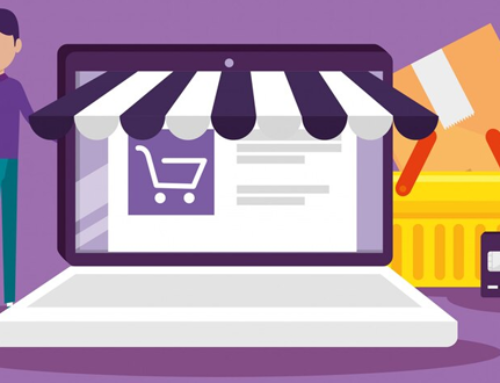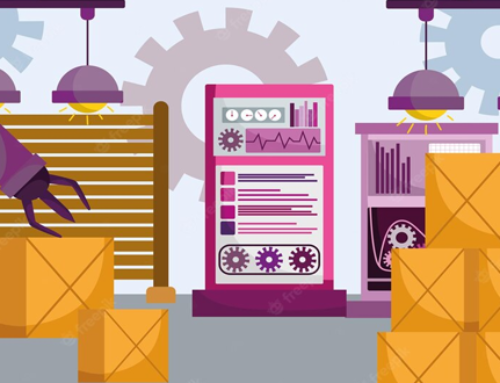Title: CRM Software Development Services in Bangalore
We offer professional CRM software development services in Bangalore, catering to diverse business needs. Our team of experienced CRM software developers in Bangalore is highly skilled in creating customized solutions that streamline your customer relationship management processes. With a deep understanding of industry best practices and advanced technologies, we deliver reliable and scalable CRM software solutions to enhance your business efficiency. Our focus on quality ensures that our CRM software solutions are robust, secure, and user-friendly. Trust our expert CRM software developers in Bangalore to develop a tailored CRM solution that empowers your organization to build stronger customer relationships and drive growth.
Introduction
Customer Relationship Management (CRM) software plays a pivotal role in helping businesses manage and nurture these relationships effectively. From organizing customer data to streamlining sales processes and improving customer service, CRM software has become an indispensable tool for modern businesses. In this comprehensive guide, we will delve into the world of CRM software, exploring its definition, evolution, key components, and the crucial role it plays in driving business growth and success.
Defining CRM Software

At its core, Customer Relationship Management (CRM) software refers to a technology solution designed to help businesses manage their interactions with current and potential customers. It enables organizations to centralize customer data, track interactions across various channels, and analyze customer behaviors and preferences. By providing a unified view of customer information, CRM software empowers businesses to deliver personalized experiences, improve customer satisfaction, and drive sales and revenue growth.
The significance of CRM software for businesses cannot be overstated. In today’s competitive landscape, where customer expectations are constantly evolving, businesses need robust tools to manage relationships effectively. CRM software serves as a strategic asset, helping organizations align their sales, marketing, and customer service efforts to meet customer needs and preferences. Whether it’s identifying sales opportunities, segmenting customers for targeted marketing campaigns, or resolving customer inquiries promptly, CRM software provides the foundation for building strong and lasting customer relationships.
Evolution of CRM:

The roots of CRM can be traced back to the 1980s when businesses first began to recognize the importance of maintaining customer data and interactions electronically. Initially, CRM solutions were rudimentary, consisting primarily of contact management systems designed to store customer information such as names, addresses, and contact details.
However, as technology advanced and customer expectations continued to rise, CRM software evolved significantly over the years. The 1990s witnessed the emergence of more sophisticated CRM systems, with features such as sales force automation and marketing automation becoming increasingly prevalent. These systems enabled businesses to streamline their sales and marketing processes, improve efficiency, and gain deeper insights into customer behavior.
In the early 2000s, the advent of cloud computing revolutionized the CRM landscape, making it more accessible and affordable for businesses of all sizes. Cloud-based CRM solutions offer scalability, flexibility, and real-time access to data, empowering organizations to manage customer relationships more effectively. Moreover, the integration of social media and mobile technologies further transformed CRM, enabling businesses to engage with customers across multiple channels and touchpoints.
Today, we are witnessing the rise of intelligent CRM platforms powered by artificial intelligence (AI) and machine learning algorithms. These platforms leverage data analytics and predictive modeling to anticipate customer needs, personalize interactions, and drive proactive engagement. As CRM technology continues to evolve, we can expect to see further innovations aimed at enhancing the customer experience and delivering measurable business value.
Components of CRM

CRM software typically consists of several core components, each serving a specific function in managing customer relationships effectively. Let’s take a closer look at some of the key components of CRM software:
- Contact Management: At the heart of CRM software lies contact management functionality, which allows businesses to store and organize customer information in a centralized database. From basic contact details to more complex data such as purchase history and interaction logs, contact management enables businesses to maintain a comprehensive view of their customers.
- Sales Automation: Sales automation features streamline the sales process by automating repetitive tasks such as lead management, opportunity tracking, and quote generation. By automating these tasks, sales teams can focus more on building relationships with prospects and closing deals, leading to improved efficiency and productivity.
- Marketing Automation: CRM software often includes marketing automation capabilities, enabling businesses to create, execute, and track marketing campaigns seamlessly. From email marketing and lead nurturing to campaign analytics and performance tracking, marketing automation empowers businesses to engage with customers effectively across various channels.
- Customer Support: Effective customer support is crucial for maintaining strong customer relationships. CRM software typically includes tools for managing customer inquiries, resolving issues, and tracking support tickets. By centralizing customer support processes, businesses can provide timely and personalized assistance, leading to higher levels of customer satisfaction.
In addition to these core components, modern CRM software may also offer advanced features such as analytics and reporting, social media integration, and mobile accessibility, providing businesses with the tools they need to succeed in today’s competitive marketplace.
CRM software plays a vital role in helping businesses manage and nurture customer relationships effectively. By providing a centralized platform for storing customer data, streamlining sales and marketing processes, and delivering exceptional customer service, CRM software enables organizations to drive business growth and success. Whether it’s identifying new sales opportunities, nurturing leads, or resolving customer issues, CRM software empowers businesses to deliver personalized experiences that keep customers coming back for more.
As technology continues to evolve, we can expect CRM software to become even more sophisticated, with advanced capabilities such as AI-driven predictive analytics and omnichannel engagement. By embracing these innovations and investing in the right CRM solution, businesses can stay ahead of the curve and build lasting relationships with their customers in the digital age.
The Importance of CRM Software
-
Enhancing Customer Relationships
At the heart of CRM software lies its ability to enhance customer relationships. By centralizing customer data and interactions, CRM software provides businesses with a holistic view of their customers. This enables businesses to better understand their customers’ needs, preferences, and behavior, allowing them to tailor their interactions and offerings accordingly. Whether it’s sending personalized communications, resolving issues promptly, or anticipating future needs, CRM software empowers businesses to build stronger and more meaningful relationships with their customers.
Moreover, CRM software enables businesses to segment their customer base effectively. By categorizing customers based on various criteria such as demographics, purchasing behavior, or engagement level, businesses can target specific customer segments with relevant marketing campaigns and personalized offers. This targeted approach not only enhances customer satisfaction but also increases the likelihood of conversion and loyalty.
-
Improving Customer Experience
In today’s experience-driven economy, providing exceptional customer experiences is no longer a luxury but a necessity. CRM software plays a pivotal role in this regard by enabling businesses to deliver personalized experiences at every touchpoint of the customer journey. By leveraging data analytics and automation capabilities, CRM software allows businesses to tailor interactions, recommend products or services, and anticipate customer needs in real-time.
For instance, imagine a scenario where a customer reaches out to a company’s support team with an issue. With CRM software in place, the support team can access the customer’s entire interaction history, including past purchases, preferences, and previous inquiries. Armed with this information, the support team can provide a personalized and efficient resolution, thereby enhancing the overall customer experience.
Furthermore, CRM software enables businesses to engage with customers across multiple channels seamlessly. Whether it’s through email, social media, or live chat, CRM software centralizes all customer communications, ensuring a consistent and cohesive experience across channels. This omnichannel approach not only enhances convenience for customers but also reinforces brand loyalty and trust.
-
Increasing Sales and Revenue
One of the primary objectives of CRM software is to drive sales growth and revenue. By streamlining sales processes and providing valuable insights, CRM software empowers sales teams to identify opportunities, prioritize leads, and close deals more effectively.
For instance, CRM software can automate lead scoring and qualification processes, allowing sales teams to focus their efforts on high-potential leads. Moreover, CRM software provides real-time visibility into the sales pipeline, enabling sales managers to track progress, forecast revenue, and allocate resources more efficiently.
Additionally, CRM software facilitates cross-selling and upselling opportunities by analyzing customer data and identifying relevant product recommendations. By proactively suggesting complementary products or upgrades based on past purchases or browsing history, businesses can increase their average order value and maximize revenue per customer.
-
Enhancing Team Collaboration
Effective collaboration across departments is essential for delivering a seamless and cohesive customer experience. CRM software serves as a centralized platform that fosters collaboration and communication among sales, marketing, and customer support teams.
For example, CRM software allows sales and marketing teams to align their efforts by sharing valuable insights and feedback. Marketing teams can leverage CRM data to tailor their campaigns and messaging to align with sales objectives, while sales teams can provide valuable input on customer preferences and pain points.
Similarly, CRM software enables seamless coordination between sales and customer support teams. When a salesperson closes a deal, they can seamlessly hand off customer information and requirements to the support team for onboarding and ongoing assistance. This ensures a smooth transition and minimizes the risk of information loss or miscommunication.
Features and Functionality of CRM Software
- Contact Management: CRM software serves as a centralized database for managing customer data. It allows businesses to store and organize essential information about their contacts, including names, addresses, contact details, purchase history, interactions, preferences, and any other relevant data. This centralized system ensures that all team members have access to up-to-date information about customers, facilitating better communication and personalized interactions.
- Sales Automation: CRM systems streamline sales processes by automating various tasks and workflows. This includes lead management, where leads are captured, tracked, and assigned to sales representatives for follow-up. CRM software also facilitates opportunity tracking, allowing sales teams to manage potential deals through various stages of the sales pipeline. Sales automation features help improve efficiency, reduce manual workload, and ensure timely follow-ups, ultimately leading to increased sales productivity and revenue.
- Marketing Automation: CRM software integrates with marketing tools to automate various marketing activities and campaigns. This includes email marketing, where CRM systems enable businesses to create targeted email campaigns, send personalized messages, and track email performance. Additionally, CRM software supports lead nurturing efforts by automating the delivery of relevant content and communications based on customer behavior and preferences. Marketing automation features help businesses engage prospects and customers more effectively, driving lead generation and conversion.
- Customer Support: CRM systems include features designed to streamline customer support processes and enhance the overall customer experience. This may include ticketing systems for managing customer inquiries and support requests, knowledge bases where customers can find answers to frequently asked questions, and self-service portals that empower customers to resolve issues independently. By providing efficient and responsive customer support, businesses can build stronger relationships with customers and improve satisfaction levels.
- Analytics and Reporting: CRM software offers robust analytics and reporting tools that enable businesses to gain valuable insights into various aspects of their operations. This includes analyzing customer behavior and preferences, tracking sales performance metrics such as conversion rates and revenue, and measuring the effectiveness of marketing campaigns in terms of ROI (Return on Investment). By leveraging data analytics, businesses can make informed decisions, identify areas for improvement, and optimize their strategies to better meet customer needs and drive business growth.
CRM software plays a crucial role in helping businesses effectively manage their relationships with customers across various stages of the customer lifecycle, from initial contact to post-sale support. By centralizing customer data, automating key processes, and providing actionable insights, CRM systems empower businesses to deliver superior customer experiences and achieve their sales and marketing goals.
Choosing the Right CRM Software
Understanding Business Needs
The first step in selecting the right CRM software is to gain a clear understanding of your business needs and goals. Every organization is unique, with its own set of requirements and challenges. Therefore, it’s essential to identify the specific functionalities and features that are crucial for your business operations. Whether you’re focusing on lead management, sales automation, customer support, or marketing campaigns, articulating your requirements will help narrow down the options and find a CRM solution that best suits your needs.
Deployment Options
Once you’ve identified your business needs, the next consideration is the deployment model for your CRM software. There are primarily three deployment options to choose from:
- On-Premises: On-premises CRM software is installed and hosted locally on your company’s servers. While this offers greater control and customization, it requires significant upfront investment in hardware, infrastructure, and IT resources.
- Cloud-Based: Cloud-based CRM software, also known as Software-as-a-Service (SaaS), is hosted on remote servers and accessed through the internet. This model offers scalability, flexibility, and lower upfront costs, making it ideal for small to medium-sized businesses.
- Hybrid: Hybrid CRM solutions combine elements of both on-premises and cloud-based deployment models, allowing organizations to leverage the benefits of both approaches. This offers greater flexibility in data management and security while maintaining control over critical operations.
Scalability and Customization
Scalability and customization are essential factors to consider when evaluating CRM software. As your business grows and evolves, your CRM system should be able to scale seamlessly to accommodate increasing data volume and user requirements. Additionally, the ability to customize the CRM software according to your specific business processes and workflows is crucial for maximizing efficiency and productivity. Look for a CRM solution that offers robust customization options and scalability features to ensure long-term viability and adaptability.
Integration Capabilities
In today’s interconnected business landscape, integration capabilities are paramount for maximizing the value of your CRM software. Your CRM system should seamlessly integrate with other key business systems and applications, such as ERP software, marketing automation tools, e-commerce platforms, and social media channels. This facilitates data sharing, streamlines processes, and provides a holistic view of customer interactions across multiple touchpoints. Prioritize CRM solutions that offer comprehensive integration capabilities and support interoperability with your existing technology stack.
User Experience and Adoption
Last but not least, user experience and adoption are critical factors that can significantly impact the success of your CRM implementation. No matter how feature-rich a CRM software may be, its effectiveness ultimately depends on how well it is embraced by your employees. Therefore, prioritize usability, intuitive design, and user-friendly interfaces when evaluating CRM options. Additionally, provide adequate training and support to ensure that your team members are proficient in using the CRM software effectively. A positive user experience and high adoption rates will drive productivity, collaboration, and customer satisfaction throughout your organization.
Benefits of CRM Software
-
Improved Efficiency and Productivity
At the heart of CRM software lies its ability to streamline processes and eliminate cumbersome manual tasks that once plagued businesses. By centralizing customer data and automating routine activities such as data entry, email communication, and task management, CRM systems empower employees to focus their efforts on high-value tasks. This not only accelerates workflow but also enhances overall productivity, enabling teams to accomplish more in less time. Moreover, the seamless integration of CRM software with other essential tools and applications further amplifies its efficiency, creating a cohesive ecosystem that fosters collaboration and synergy across departments.
-
Enhanced Customer Insights
In today’s hyper-competitive market, understanding customer preferences, behaviors, and needs is paramount to success. CRM software serves as a treasure trove of invaluable customer data, offering deep insights that allow businesses to tailor their offerings to meet the ever-evolving demands of their clientele. By analyzing purchasing patterns, communication history, and demographic information, companies can segment their customer base effectively and personalize interactions for maximum impact. This not only strengthens customer relationships but also lays the groundwork for targeted marketing campaigns, product development initiatives, and strategic decision-making.
-
Better Decision-Making
In the fast-paced realm of business, informed decision-making is the cornerstone of success. CRM software empowers organizations with real-time data and analytics that serve as a guiding light in the tumultuous sea of uncertainty. By tracking key performance indicators, monitoring sales pipelines, and forecasting future trends, businesses can make data-driven decisions that mitigate risks and capitalize on opportunities. Whether it’s identifying emerging market trends, optimizing resource allocation, or fine-tuning sales strategies, CRM software provides the tools and insights necessary to navigate the complexities of the modern business landscape with confidence and clarity.
-
Competitive Advantage
In an era where customer experience reigns supreme, CRM software is the ultimate weapon in the arsenal of competitive advantage. By enabling businesses to deliver exceptional customer experiences at every touchpoint, CRM software cultivates loyalty, fosters advocacy, and sets companies apart from their competitors. From personalized interactions and proactive support to seamless omnichannel experiences, CRM software empowers businesses to exceed customer expectations and forge deep, meaningful connections that transcend transactional relationships. Moreover, by staying ahead of the curve and anticipating customer needs before they arise, businesses can position themselves as industry leaders and pioneers of innovation, driving sustainable growth and long-term success.
Conclusion
In conclusion, CRM software has become an indispensable tool for businesses across industries, empowering them to build stronger relationships with customers, drive sales, and enhance overall efficiency. By understanding the fundamentals of CRM, exploring the top solutions available, and implementing best practices, companies can unlock the full potential of their customer data and pave the way for sustainable growth and success in the digital age.
Faqs
- Is CRM software suitable for small businesses?
Yes, CRM software comes in various sizes and functionalities, including options specifically tailored for small businesses. It can help small businesses efficiently manage customer relationships, streamline operations, and compete more effectively.
- How does CRM software integrate with other business tools?
CRM software often offers integrations with popular business tools such as email clients, marketing automation platforms, accounting software, and e-commerce platforms. These integrations allow for seamless data flow and improved productivity across different departments.
- Is CRM software customizable to specific business needs?
Yes, many CRM software solutions offer customization options to tailor the system to specific business requirements. This may include custom fields, workflows, reports, and even third-party app integrations to extend functionality.
- Can CRM software help improve sales performance?
Yes, CRM software can help sales teams track leads, manage pipelines, prioritize tasks, and access valuable insights that lead to more informed decision-making and ultimately improved sales performance.
- Is CRM software only for sales teams?
No, CRM software can benefit various departments within an organization, including marketing, customer service, and even product development. It enables cross-departmental collaboration and ensures a unified approach to customer interactions.
- What are the deployment options for CRM software?
CRM software can be deployed on-premises or in the cloud. On-premises deployment involves installing and maintaining the software on local servers, while cloud deployment involves accessing the software over the internet via a subscription-based model.
- Is CRM software secure?
Yes, reputable CRM software providers prioritize security measures such as data encryption, access controls, regular audits, and compliance with industry standards such as GDPR and HIPAA to protect sensitive customer information.
- How does CRM software handle data privacy and compliance?
CRM software typically includes features to help businesses comply with data privacy regulations by providing tools for consent management, data anonymization, and secure data storage.
- Can CRM software help improve customer service?
Yes, CRM software can help customer service teams by providing a centralized platform for managing customer inquiries, tracking service requests, and delivering personalized support based on customer history and preferences.
- What kind of training and support are available for CRM software users?
Most CRM software providers offer training resources such as online tutorials, documentation, and webinars to help users get started. Additionally, they provide customer support through various channels like email, phone, and live chat.








